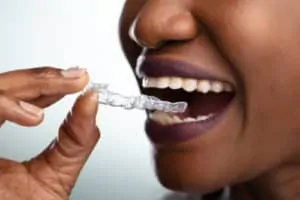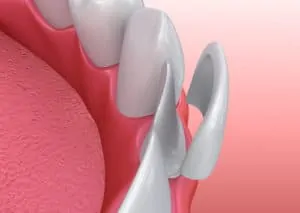
Biting Is Bad — Sometimes
The truth is, there are really two answers to whether biting the soft tissues in our mouths is bad for us. On one hand, occasional bites typically heal on their own and usually aren’t something to worry over. On the other hand, when biting becomes a habit or you find yourself accidentally biting your lips, cheeks, or tongue a lot, it can cause inflammation, swelling, and sores. These sores can become infected if not treated or if they’re constantly being reopened by more biting.
Why Do We Bite?
We’ve all experienced those accidental bites we talked about above while chewing or perhaps during a big sneeze. While these one-off biting incidents sure can hurt, even for a few days, they’re often not something to be concerned about.
However, when the accidental bites happen often, you should see your dentist in Asheboro. Those who tend to bite their lips, cheeks, or tongue a lot while they’re eating or even talking may have something known as malocclusion or a bad bite. A bad bite means that our top teeth don’t line up well with our bottom teeth, and that makes it really easy for a piece of the tongue, lip, or cheek to get stuck in between them (ouch!). Additionally, malocclusion can lead to its own set of problems like headaches, jaw pain, TMJ (temporomandibular disorder), and shifting teeth.
There are also cases where people habitually bite their lips, cheeks, or tongue. Usually, this is a response to high-stress situations or even when they’re concentrating. Constant biting on the tissues, whether caused by psychological or physical factors, should be stopped before it leads to sores or painful swelling.
How To Stop
Depending on what’s causing you to bite in the first place, there are things you can do to help yourself stop.
- If biting is caused by stress… If you’re one of the people who constantly chew on your lips, cheeks, or tongue, it can be difficult to stop. However, if you’re able to recognize when you bite, you can work to consciously stop. There are also times when a type of behavior therapy can help break the habit.
- If biting is caused by a bad bite… Those who don’t purposely bite but find themselves accidentally nipping their lips, cheek, or tongue often can benefit from a trip to their Asheboro dentist. The best way to prevent additional problems is to seek dental help to determine if a bad bite is to blame. Your dental team can help you find the best treatment for your individual case so you can stop biting.







 It’s always good to get out and get some exercise. When you’re participating in any sport, your
It’s always good to get out and get some exercise. When you’re participating in any sport, your  It seems like every day there’s a new option for patients to
It seems like every day there’s a new option for patients to 





